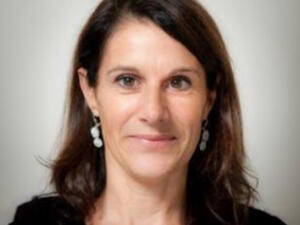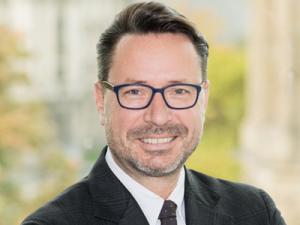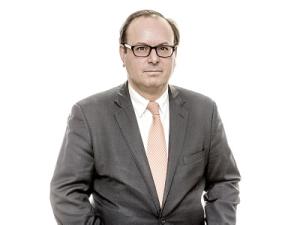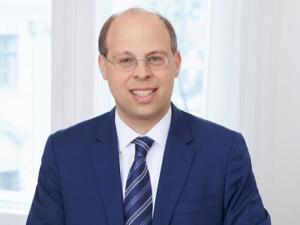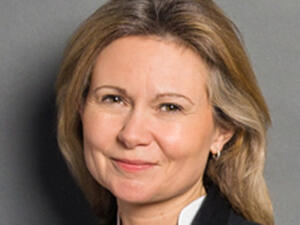Abbott, August Debouzy and Taylor Wessing win in first Paris infringement ruling
Dexcom's first attempt to sue Abbott at the UPC for infringing one of its glucose-monitoring patents has failed. The Paris local division today declared Dexcom's patent invalid. The decision comes just one day after the Düsseldorf local division issued its first infringement judgment.
4 July 2024 by Mathieu Klos
A day earlier than expected, the Paris local division has issued its first judgment on the merits in the dispute between Dexcom and Abbott over glucose-monitoring devices. The court declared Dexcom’s EP 3 435 866 invalid in its entirety. This decision applies to all 17 current UPC states (case ID: ACT_546446/2023, UPC_CFI_230/2023).
This is the first time that patent holders’s fears about the Unified Patent Court have come to fruition. Many had initially excluded their patents from the UPC’s jurisdiction for fear a central revocation action could invalidate their patents for large swathes of Europe.
Dexcom filed an infringement action against Abbott Laboratories and nine subsidiaries on 7 July 2023, shortly after the UPC was launched. Abbott responded with a counterclaim for revocation, which was ultimately successful. Dexcom can appeal the judgment.
Dexcom patent revoked
The panel under presiding judge Camille Lignières ruled, “the EP 866 is not valid, neither as granted, nor as amended by Auxiliary requests 1 and 2, and it must be entirely revoked in accordance with Art. 138(1) EPC and Art. 65(2) UPCA”.
The panel also comprised legally qualified judges Carine Gillet and Rute Lopes and technically qualified judge Alain Dumont. The judges had reservations that the technology constituted an inventive step. As a result, the panel ruled there is no basis for Dexcom’s infringement claim and thus dismissed it.
Dexcom had demanded an injunction for all UPC countries with the exception of Germany. Here, an older infringement action based on the same patent is already pending before Mannheim Regional Court. There is also a German nullity action against EP 866 at the Federal Patent Court. The latter had questioned the validity of the patent in a preliminary opinion, leading Mannheim Regional Court to suspend the infringement proceedings.
Munich rules next
Today’s decision is part of a massive global dispute between the two opponents over smart glucose-monitoring devices, in which the monitoring and administration of insulin can be controlled using mobile devices.
- Camille Lignieres
- Matthias Zigann
Besides the UPC, Dexcom and Abbott are fighting over these devices before the courts in Germany, Spain, the UK and the EPO. The two companies are also facing off in the US.
At the UPC, Dexcom has claimed infringement of five of its patents, Abbott has claimed infringement of four patents. The parties have filed dozens of counterclaims for revocation. Dexcom struck first in summer 2023, filing infringement actions against Abbott before the Munich local division and Paris local division regarding four patents.
The Paris local division heard the first of these UPC cases on 25 May. Shortly thereafter, the Munich local division heard a second claim by Dexcom on 4 June. The latter panel under presiding judge Matthias Zigann intends to decide quickly and will probably announce its first substantial judgment at the end of July or potentially earlier (case ID: ACT_547520/2023). The tide could then turn again for Dexcom.
Two opposing directions
The judgment from Paris constitutes the UPC’s second ever infringment ruling. The first came yesterday when the Düsseldorf local divison granted Kaldewei an injunction against German bathtub manufacturer Bette (case ID: ACT_459767/2023).
There was a moment of shock for Kaldewei when the court announced the verdict, for which JUVE Patent was present. Presiding judge Ronny Thomas began his remarks by stating that the court had declared Kaldewei’s EP 3 375 337 invalid in its original version. Nevertheless, Kaldewei had filed an auxiliary request, which took effect at the UPC. In the extended version, the local division upheld the patent and found Bette’s products have infringed.
The rulings from Paris and Düsseldorf thus point in completely different directions. Users of the new system are therefore none the wiser as to which way the UPC judges are leaning concerning permanent injunctions. The next infringement rulings, mainly from the Munich local division, are due in the coming months and could provide more clarity.
Abbott’s team prevails
Dexcom sued ten Abbott companies in the dispute over EP 866 and these sought to overturn the patent. Abbott France relies on François Pochart’s Paris practice of August Debouzy.
- François Pochart
- Gisbert Hohagen
- Eelco Bergsma
All other Abbott subsidiaries instructed Taylor Wessing teams. These include Gisbert Hohagen, Dietrich Kamlah and Christian Lederer from Germany, Christian Dekoninck from Brussels, Thomas Adocker from Vienna, Wim Maas from Amsterdam and Eelco Bergsma from Eindhoven. Taylor Wessing teams are also representing Abbott in all other proceedings in Europe. A team from the London office is also involved.
- Thomas Adocker
- Anne-Charlotte Le Bihan
A Bird & Bird team around partner Anne-Charlotte Le Bihan and Laurent Labatte represented claimant Dexcom in the French case. Bird & Bird also represents Dexcom in other French cases, while Quinn Emanuel took over the German proceedings for Dexcom.
Hoffmann Eitle patent attorneys Mark Jones and David Sproston took over the technical part in the Paris UPC case.
